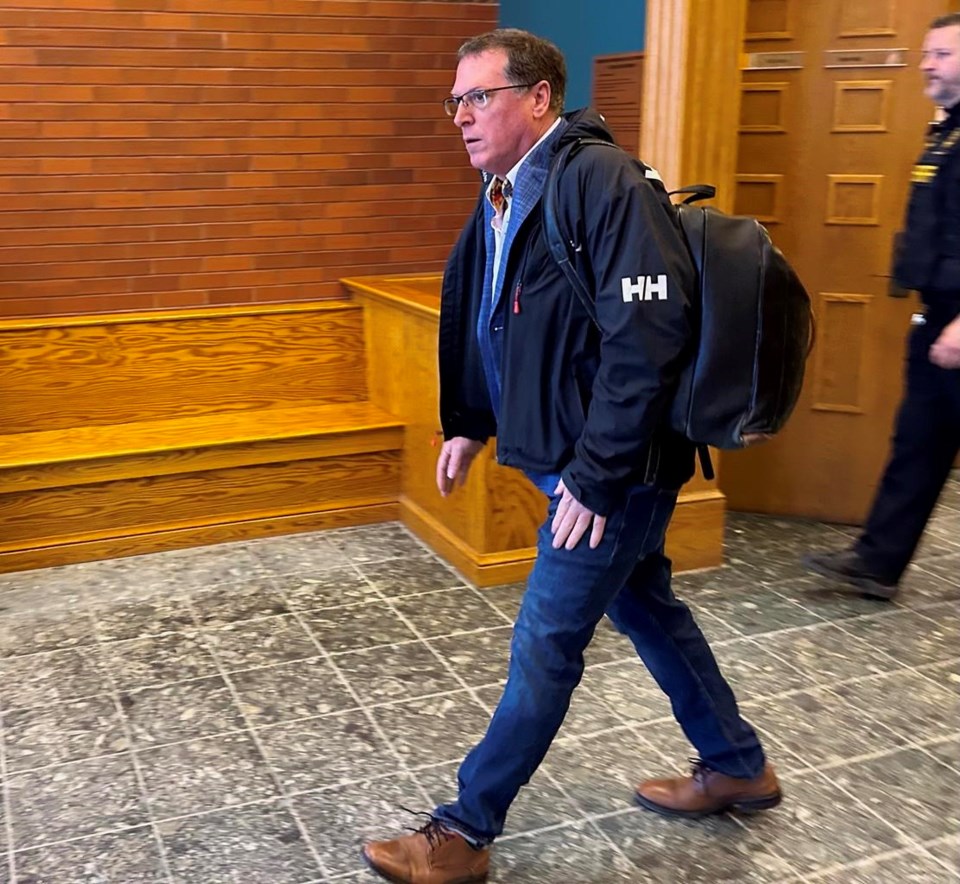GANDER, N.L. — A dental surgeon who allowed a correctional officer to extract four teeth from a sedated inmate in central Newfoundland was granted an absolute discharge by a Supreme Court judge on Tuesday.
Justice Melanie Del Rizzo told a courtroom in Gander, N.L., that although Dr. Louis Bourget violated his position of authority and trust, convicting him of a criminal offence and putting him in custody would serve neither the dentist nor the public.
"I acknowledge that Dr. Bourget made a terrible mistake and, in doing so, assaulted (the victim) Blair Harris," Del Rizzo said, appearing via videoconference. "However, in all circumstances of this case, I am not prepared to burden Dr. Bourget with a criminal conviction, given the extreme repercussions to him that would follow such a conviction."
The court has heard that Harris was escorted to Bourget's office in October 2020 by two correctional officers, who were present in the procedure room with the sedated inmate. Bourget has said that they showed interest in the work he was performing in Harris's mouth.
Bourget "got caught up in a teaching moment" when he let one officer, Ron McDonald, remove four teeth from Harris's mouth while the other officer filmed, according to an agreed statement of facts.
The 62-year-old dental surgeon pleaded guilty to assault last year. Prosecutors wanted a three-month sentence; the defence sought an absolute discharge.
Del Rizzo said Tuesday that Bourget has acknowledged he went too far. Bourget, she said, has admitted in a statement to the court that he had loosened the skin around Harris's teeth so that they would be removed easily and McDonald didn't have to pull them out.
Bourget's statement said there had been no risk to Harris during the procedure.
However, Harris's victim impact statement said he suffers from anxiety and paranoia, feels unsafe in his home, and fears he can never go to a dentist again, Del Rizzo said.
She said that when he first heard what had happened to him, Harris worried he had been sexually assaulted, too.
"It is hard for me to imagine a more vulnerable individual," Del Rizzo said, noting that Harris was not only sedated but his movements were controlled by the two correctional officers with him.
Del Rizzo said she received about 70 letters of support for Bourget, including from his colleagues and former patients. His 17-page resume details extensive qualifications and a well-respected career, and no criminal past, she said. He also launched a foundation offering free dental care in Africa and Brazil.
The judge said she agreed with the dentist's defence team, who had argued that a criminal conviction would end Bourget's career. She also accepted their claim that the COVID-19 pandemic had been causing Bourget significant stress when he had his "lapse in judgment."
Bourget has been disciplined by two dental boards — in Nova Scotia and Newfoundland and Labrador — and the case has cost him about $1 million in legal fees, fines and other expenses, she said. His risk of reoffending is "almost zero," she added.
"Therefore, I am satisfied that the imposition of a discharge is in Dr. Bourget's best interest and is not contrary to the public interest," she said. "In fact the letters before me demonstrate that entering a conviction in this case would not be in the broader public interest."
Bourget told reporters after Del Rizzo's decision that he had no comment on the case.
This report by The Canadian Press was first published April 9, 2024.
Sarah Smellie, The Canadian Press



